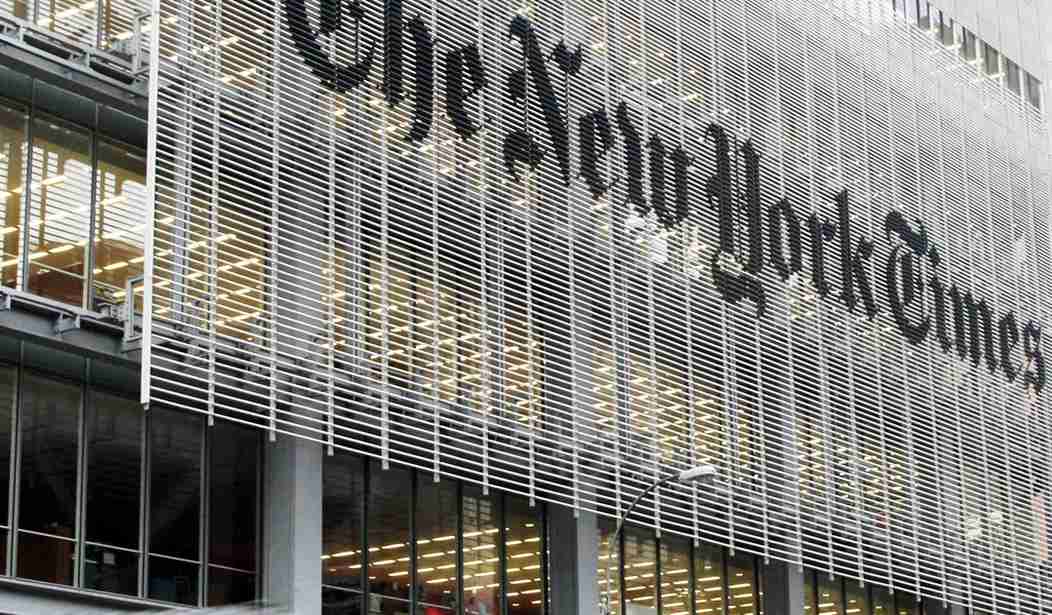A fundamental difference between the left and right concerns how each assesses public policies. The right asks, "Does it do good?" The left asks a different question.
One example is the minimum wage. In 1987, The New York Times editorialized against any minimum wage. The title of the editorial said it all -- "The Right Minimum Wage: $0.00."
"There's a virtual consensus among economists," wrote the Times editorial, "that the minimum wage is an idea whose time has passed. Raising the minimum wage by a substantial amount would price working poor people out of the job market . ... More important, it would increase unemployment. ... The idea of using a minimum wage to overcome poverty is old, honorable -- and fundamentally flawed."
Why did The New York Times editorialize against the minimum wage? Because it asked the conservative question: "Does it do good?"
But 27 years later, The New York Times editorial page wrote the very opposite of what it had written in 1987, and called for a major increase in the minimum wage. In that time, the page had moved further left and was now preoccupied not with what does good -- but with income inequality, which feels bad. It lamented the fact that a low hourly minimum wage had not "softened the hearts of its opponents" -- Republicans and their supporters.
A second example is affirmative action. Study after study -- and, even more important, common sense and facts -- have shown the deleterious effects that race-based affirmative action have had on black students. Lowering college admissions standards for black applicants has ensured at least two awful results.
Recommended
One is that more black students fail to graduate college -- because they have too often been admitted to a college that demands more academic rigor than they were prepared for. Rather than attend a school that matches their skills, a school where they might thrive, they fail at a school where they are over-matched.
The other result is that many, if not most, black students feel a dark cloud hanging over them. They suspect that other students wonder whether they, the black students, were admitted into the college on merit or because standards were lowered.
It would seem that the last question supporters of race-based affirmative action ask is, "Does it do good?"
A third example is pacifism and other forms of "peace activism."
The left has a soft spot for pacifism -- the belief that killing another human being is always immoral. Not all leftists are pacifists, but pacifism emanates from the Left, and just about all leftists support "peace activism," "peace studies" and whatever else contains the word "peace."
The right, on the other hand, while just as desirous of peace as the left -- what conservative parent wants their child to die in battle? -- knows that pacifism and most "peace activists" increase the chances of war, not peace.
Nothing guarantees the triumph of evil like refusing to fight it. Great evil is therefore never defeated by peace activists, but by superior military might. The Allied victory in World War II is an obvious example. American military might likewise contained and ultimately ended Soviet Communism.
Supporters of pacifism, peace studies, American nuclear disarmament, American military withdrawal from countries in which it has fought -- Iraq is the most recent example -- do not ask, "Does it do good?'
Did the withdrawal of America from Iraq do good? Of course not. It only led to the rise of Islamic State with its mass murder and torture.
So, then, if in assessing what public policies to pursue, conservatives ask "Does it do good?" what question do liberals ask?
The answer is, "Does it make people -- including myself -- feel good?"
Why do liberals support a higher minimum wage if doesn't do good? Because it makes the recipients of the higher wage feel good (even if other workers lose their jobs when restaurants and other businesses that cannot afford the higher wage close down) and it makes liberals feel good about themselves: We liberals, unlike conservatives, have soft hearts.
Why do liberals support race-based affirmative action? For the same reasons. It makes the recipients feel good when they are admitted to more prestigious colleges. And it makes liberals feel good about themselves for appearing to right the wrongs of historical racism.
The same holds true for left-wing peace activism: Supporting "peace" rather than the military makes liberals feel good about themselves.
Perhaps the best example is the self-esteem movement. It has had an almost wholly negative effect on a generation of Americans raised to have high self-esteem without having earned it. They then suffer from narcissism and an incapacity to deal with life's inevitable setbacks. But self-esteem feels good.
And feelings -- not reason -- is what liberalism is largely about. Reason asks: "Does it do good?" Liberalism asks, "Does it feel good?"

























Join the conversation as a VIP Member